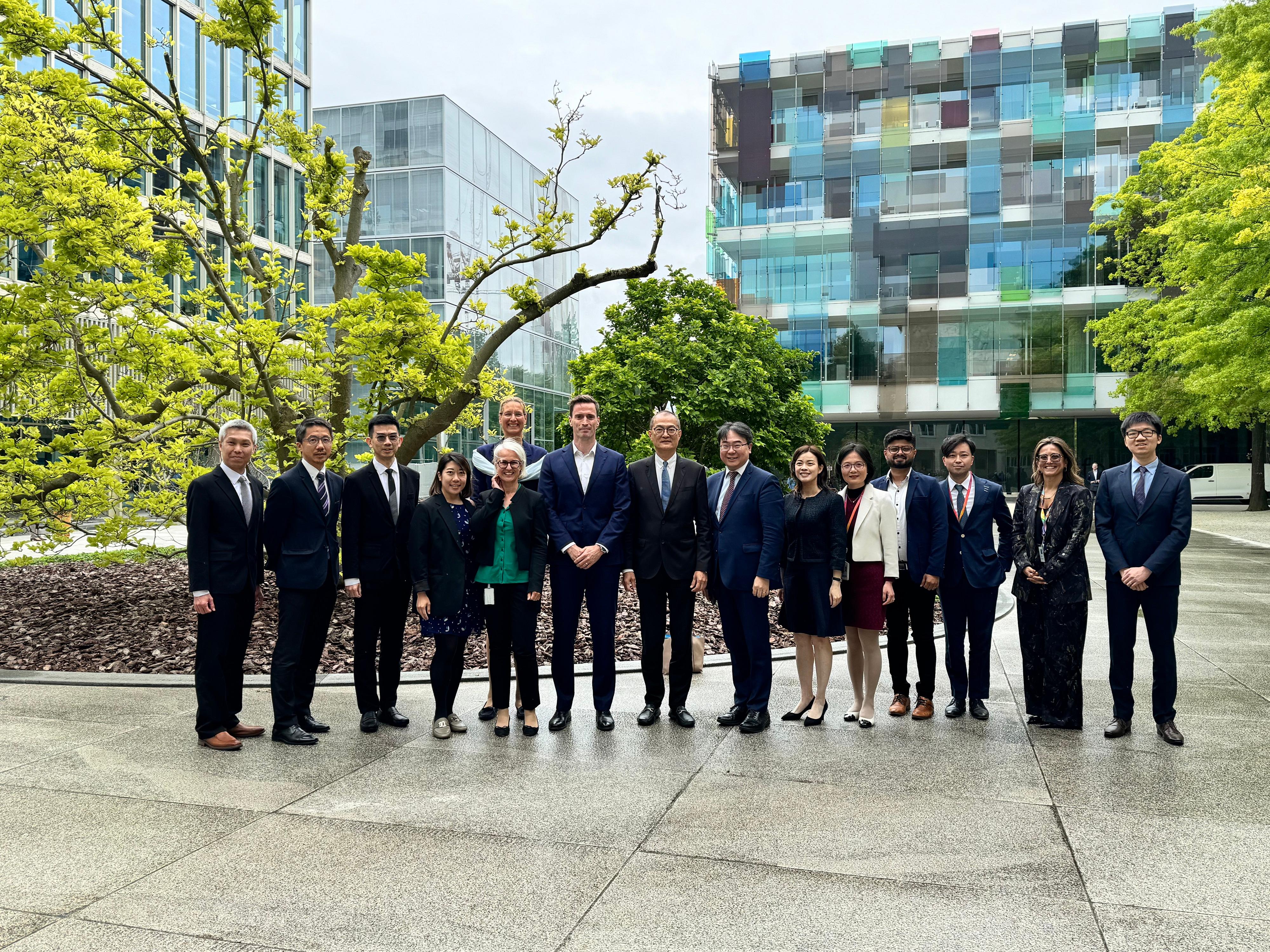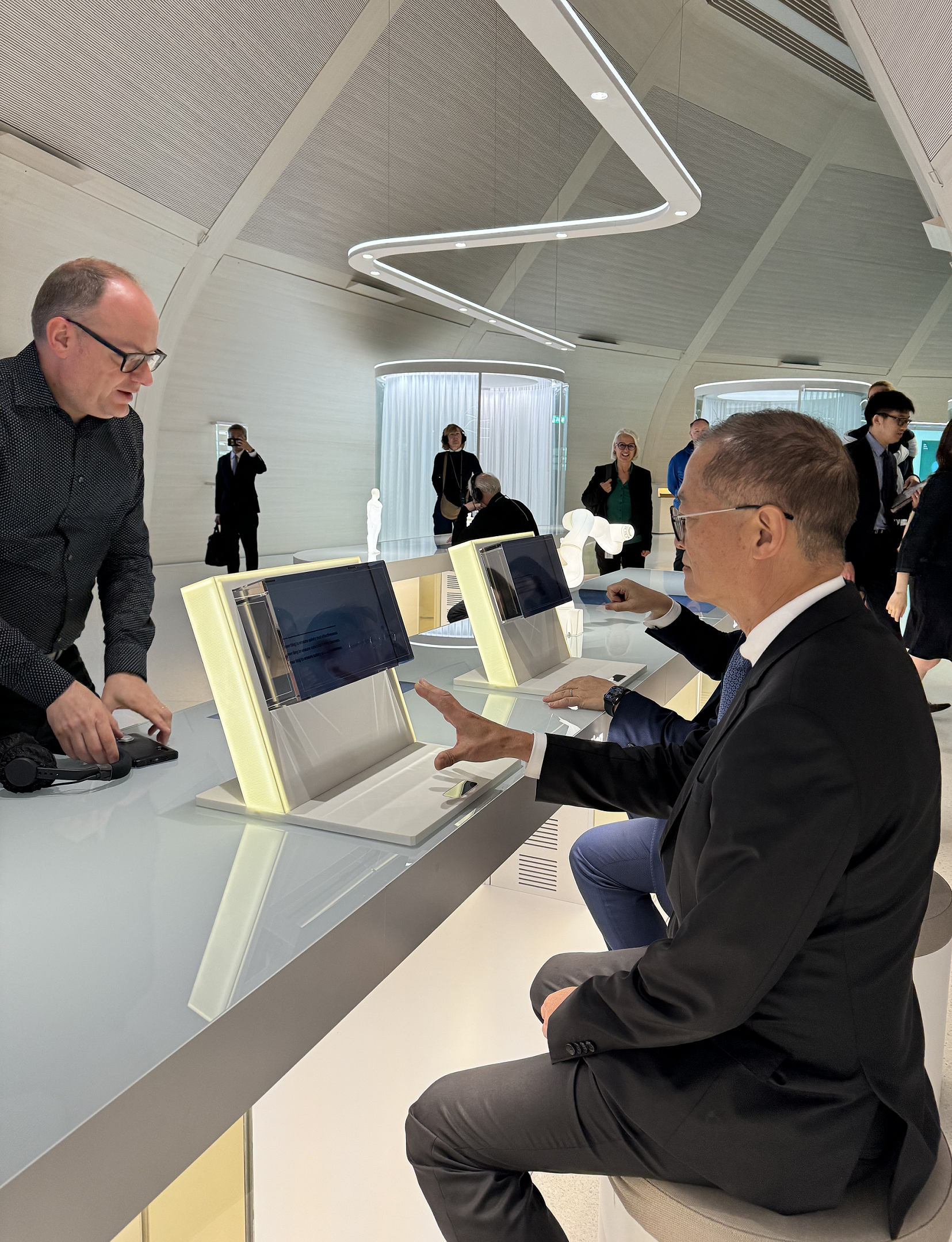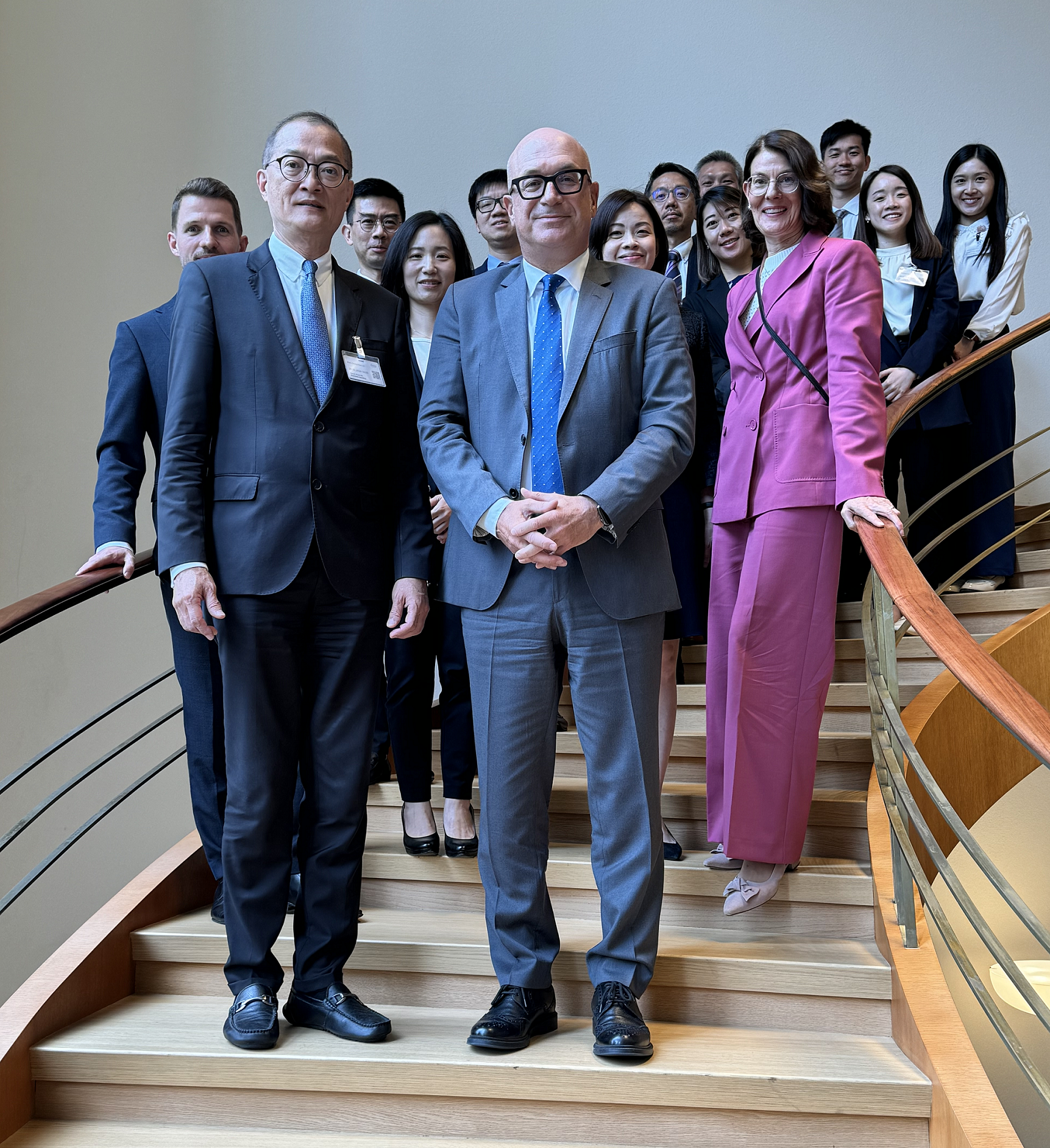Secretary for Health commences visit to Switzerland to introduce health and medical innovation initiatives in Hong Kong (with photos)
The Secretary for Health, Professor Lo Chung-mau, departed from Geneva for Basel yesterday (May 29, Basel time) to begin visit in Switzerland.
In Basel, Professor Lo led a delegation to visit multinational pharmaceutical and healthcare companies Novartis and Roche respectively, and met with their senior management to learn about the pharmaceutical groups' latest developments in research and development (R&D) of drugs, as well as reimagining medicine by using innovative science and technology. The delegation also visited Novartis Pavillon which illustrates the past, present, and future of medicine, healthcare and sciences in a digital and interactive manner to promote popularisation of science and technology.
At the meetings, Professor Lo highlighted the initiatives put forward by the Hong Kong Special Administrative Region (HKSAR) Government in developing Hong Kong into a health and medical innovation hub, including strengthening the regulatory and approval regimes of drugs and medical devices, as well as promoting the development of clinical trial industry.
Professor Lo said, "The Chief Executive announced in the 2023 Policy Address that the HKSAR Government will enhance the prevailing evaluation, approval and registration mechanism for drugs as well as establish an internationally recognised regulatory authority for drugs and medical devices with the long-term objective of setting up an authority which registers drugs and medical devices under the 'primary evaluation' approach. All these aim at accelerating the clinical use of new drugs and medical devices, and spurring the development of industries relating to the R&D and clinical trial of drugs and medical devices."
"Following the announcement of the Policy Address, the HKSAR Government has been making proactive moves on all fronts and has scored certain achievements in just six months, including the formal acceptance by the International Council for Harmonisation of Technical Requirements for Pharmaceuticals for Human Use as its observer and the implementation of the new drug approval mechanism, known as the '1+' mechanism, respectively on October 31 and November 1 last year. The HKSAR Government will set up the preparatory office for the Hong Kong Centre for Medical Products Regulation (CMPR) in the first half of this year to study the restructuring and strengthening of the regulatory and approval regime for drugs, medical devices and technologies, and put forward proposals and steps for establishing the CMPR which will be a step towards the transition to the 'primary evaluation' approach."
"Moreover, the HKSAR Government will establish the Greater Bay Area International Clinical Trial Institute in the Hetao area by the end of this year to provide one-stop clinical trial support services, with a view to further ramping up the capacity and efficiency of clinical trials in Hong Kong and transforming the city into a leading clinical trial hub in Asia."
Professor Lo encouraged pharmaceutical firms in Switzerland to leverage the "1+" mechanism to introduce new drugs to Hong Kong to meet local healthcare needs, and take advantage of the measure of using Hong Kong-registered drugs and medical devices used in Hong Kong public hospitals in the Guangdong-Hong Kong-Macao Greater Bay Area to benefit patients in Mainland cities there. He also called on Swiss pharmaceutical firms to conduct clinical trials in Hong Kong to leverage the unparalleled advantages of the HKSAR, so as to promote the translation and clinical application of advanced biomedical technologies.
The delegation consists of members including Deputy Secretary for Health Ms Elaine Mak, and officials of the Health Bureau and the Department of Health. The delegation proceeded to Zurich at night and will continue their visit in Switzerland on May 30 (Zurich time).


